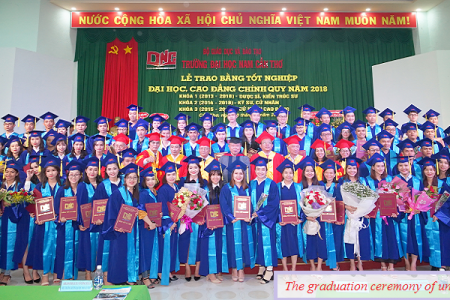Apr 24,2023
Course description Int'l Business
Microeconomics
The subject equips students with basic knowledge about the decision-making of consumers and businesses in using scarce resources, the laws of supply and demand, and the operation of the market in balancing supply and demand, the demand elasticity of goods and services, the cost structure of businesses, and the decision-making of businesses in competitive and monopolistic markets.
Macroeconomics
The subject equips students with basic knowledge about the concepts, formulas, and methods of using economic indicators that are important for the economy. The course also provides students with knowledge about economic equations, economic models that analyze the movement and interaction of these models in the long-term economy. Finally, students are exposed to basic economic models to analyze the causes of short-term fluctuations in the economy.
Marketing Research
Marketing Research is a subject that provides knowledge about the process of a marketing research project: identifying research problems and designing research; selecting samples and related issues, data collection process, questionnaire design, data preparation and analysis, some practical situations in marketing research, and writing research report.
Research Methods in Economics
This module provides students with an understanding of conducting scientific research. The first part of the module will present an overview of scientific research, how to form research problems and research design in business administration. The next section will focus on research measurements, sampling methods, data collection, and data analysis. Finally, the module will introduce how to develop a research proposal, how to write and present a scientific research report in the field of business administration.
Economic Law
This course provides students with basic legal knowledge about types of traders, commercial contracts, forms of dispute resolution and bankruptcy of enterprises, and cooperatives. The legal aspects of enterprises related to establishment and dissolution of businesses such as limited liability companies, joint-stock companies, partnerships, and sole proprietorships. Issues related to contract formation, termination, offer, acceptance, and legal liability for contract breaches are also conveyed to students. Regulations on commercial dispute resolution through forms such as negotiation, conciliation, commercial arbitration, and court are also discussed. The legal provisions on bankruptcy, such as submitting a bankruptcy application, bankruptcy procedure.
Principles of Management
The Principles of Management module provides learners with knowledge and basic concepts about management, essential skills for managers, and the history and development of management theories. The course also addresses the environmental factors that affect organizational operations. In addition, it provides students with an understanding of communication and management processes, which serve as a foundation for further business courses in the field of economics and business.
Principles of Accounting
Principles of Accounting provides with basic theoretical knowledge and understanding of accounting. This is the foundation for applying and studying the next professional subjects in the economic and business sector such as business administration, finance, banking, accounting and auditing.
Principles of Marketing
Basic Marketing provides the most fundamental knowledge about marketing, the importance of marketing in business, global marketing trends, the marketing environment, and knowledge of marketing concepts. By studying this subject, students can segment the market, identify target markets and product positioning, and analyze customer behavior. The course also helps students understand the four important elements of analyzing and building a marketing mix strategy, which includes product, price, distribution, and promotion.
Quantitative Economics
The subject of Quantitative Economics equips students with basic knowledge of applying statistical techniques to estimate, test, and forecast the relationships between economic variables. The course also helps build economic models for experimental research in economics and business, and uses computer software to estimate and test models.
Business English 1
The main curriculum chosen for teaching is Market Leader with pre-intermediate level, compiled by experienced authors in teaching as well as in compiling English textbooks for economics. Each lesson is designed in a step-by-step manner that directs learners to a specific topic. Through the content of the material, learners will be guided to integrate language knowledge with economic communication skills using specialized words.
Financial and Monetary Theory
Financial and Monetary Theory is one of the subjects within the field of knowledge, covering fundamental theoretical issues related to finance and monetary aspects such as: an overview of finance and monetary systems, government budgets; basic issues related to credit, banking, and financial markets; theories of money supply and demand, interest rates, inflation, and monetary policy...
International Economics
This course will provide knowledge of international trade theories and how to apply that concepts to analyze the issues of international trade. Based on this subject, students can analyse the trade policies and their application on policy research, social welfare. This course will present theories of trade and economic models, the relationship between countries, economies and economic regions in the world, the problems of the distribution and the use of resources between economies through the exchange of goods, services, factors of production.
Taxation
The course presents general issues about the origin, nature, and role of taxation, the scope of taxation in a competitive environment and a monopoly environment. Part two of the course presents current regulations on types of taxes in Vietnam, including value-added tax, special consumption tax, import-export tax, agricultural land use tax, natural resource tax, personal income tax, corporate income tax, gambling fees, registration fees, and other types of fees and charges.
Human Resource Management
This module covers the contents related to the role and importance of human resource management, the division of human responsibilities in the organization, job analysis, human resource planning, performance evaluation, training, treatment, recruitment and motivation at work.
Business Operations Analysis
This module introduces the business process and results of the enterprise, evaluation of production results in terms of product volume and quality, analysis of factors affecting profit and the causes of corporate profits fluctuation, analysis of the company's financial statements shows the significance of the figures on the reports. Through the relationship between the items on the balance sheet, students can assess the volatility as well as the capital structure and capital sources of the business profitability, capital flow, and solvency of the enterprise.
Management Accounting
This module includes the following contents: an overview of management accounting, cost classification, cost-volume-benefit analysis models, and their application in making management decisions, as well as developing an annual operating budget estimation system.
Applied Mathematics in Business
This module covers the content related to the use of Excel software to create and manage databases, economic analysis and forecasting. In addition, it also provides students with tools to solve problems about the efficiency of capital investment and optimization in business.
Organizational Behavior
The main topics covered in this module include the behavioral science approach, the basis of individual and group behavior, the hierarchy of needs, situational leadership, stylistic characteristics of leaders, determining leadership effectiveness, and effective decision-making.
Psychology and Art of Leadership
This module helps students have an overview of information systems in enterprises and be able to design an effective information system to serve business administrators.
International Business
This course focuses on addressing the new business challenge of moving from the domestic market to the international market as a result of globalization. It equips learners with the ability to address and manage the complexities of different global business, financial, regulatory and cultural systems.
International Economic Relations
This module provides learners with knowledge about the effects of tariffs and non-tariff barriers, measurement of domestic production protection. This module also provides information on the principles governing international economic relations under the WTO such as MFN, NT, etc., and forms of state international association. In addition, the module will provide information and links to relevant websites in import and export business such as anti-dumping, early warning, technical standards, food hygiene and safety.
International Investment
This module introduces the knowledge to conduct financial strategic planning corresponding to each stage of development, risk assessment, and valuation of investment assets; State and explain the basic concepts of interest rates, risks, types of investment assets in the market, as well as identify the role of policy, the impact of exchange rate factors on investment activities; Identify the components and analyze the risk as well as the capital structure when investing; Explain the factors affecting return and risk in different types of assets; Apply business strategies to international capital markets; and the characteristics and general principles of how to value assets;
Transportation and Insurance in Foreign Trade
The course introduces the transportation and insurance of imported and exported goods by sea; brief overview of freight forwarding services, packaging, chartering, legal aspects and transport documents, etc; Insurance of imported and exported goods by sea: a brief history of formation, issues related to insurance terms, insurance contracts, risks, losses, assessment and compensation for loss, etc.
Practice of Foreign Trade and Logistics
This module gives students the opportunity to practice logistics operations in international business activities of enterprises. The content of the module consists of two parts: (I) guiding students before the internship and (II) guiding students in the process of going to enterprises and writing reports.
International Business Negotiation
This module introduces the influence of culture on negotiation in international business, focusing on analyzing the international business negotiation process, negotiating export contracts and distribution/agent contracts, licensing, merger and acquisition (M&A) negotiations.
Foreign Trade Operation
This module equips students with practical knowledge about international trade, transaction methods in international trade, import and export activities of enterprises. From there, aiming to debate the broader issues of international trade closely, scientifically based on 3 main aspects: Theory of international trade; International trade policy and international finance.
E-Commerce
E-commerce is a new field that combines traditional commercial business forms with scientific and high-tech elements. This course provides a general understanding of the field of business and trade execution through electronic means based on modern technology. It also introduces models, ways to manage and deploy commercial applications on current technology platforms.
Business English 2
The main curriculum chosen for teaching is Market Leader with pre-intermediate level, compiled by experienced authors in teaching as well as in compiling English textbooks for economics. Each lesson is designed in a step-by-step manner that directs learners to a specific topic. Through the content of the material, learners will be guided to integrate language knowledge with economic communication skills using specialized words. In addition, learners also have the opportunity to apply what they have learned in the economic case study at the end of each chapter.
Multinational Financial Management
This module provides knowledge related to financial management in multinational companies, exchange rate risk management in multinational companies, international trade finance, investment and financing decisions associated with the international financial environment.
Logistics in Foreign Trade
This subject introduces the basic knowledge of logistics and supply chain management, focusing mainly on the two parts of warehouse management and sea transportation in order to prepare the most basic knowledge for students, so that after graduation, they can work in the import and export department, logistics companies, logistics service providers, shipping lines and can penetrate into the field of logistics, supply chain.
International Payment
The main content of the International Payment course presents issues related to exchange rates, exchange transactions in the exchange market, international payment methods, international payment methods, and main documents in international payment.
Management Information Systems
Students will be provided with basic knowledge of enterprise information systems. This helps students have an overview of information systems in enterprises and be able to design an efficient information system to serve business managers.
International Commercial Law
Students will be provided knowledge and skills in the legal and technical aspects related to activities in the international trade. On that basis, students will also be able to apply the knowledge that they have learned to work after graduation.
Quality Management
This module equips learners with the basic knowledge of quality and quality management. It introduces some of the criteria and methods of assessing quality in organizations, and guides students how to use methods, techniques, and tools for quality management. The module provides knowledge on how to build and apply a quality management system according to ISO 9000 standards and comprehensive quality management in enterprises.
Project Management
The Project Management course helps learners have a clearer view of the importance of project planning and management before actual implementation, predict the risks that may occur when implementing the project.
Sales Management
After completing this module, students can gain knowledge and experience in sales and sales management, the skills needed to become an excellent sales manager; building a proficient and productive sales team; and sales force management.
International Marketing
International marketing course covers what marketing-mix for foreign markets; how to penetrate foreign markets, and how should manufacturers have plans and strategies.
Strategic Management
Strategic management focuses on identifying and understanding the resources that bring efficiency to the company. It equips learners with concepts and theoretical frameworks used in analyzing a company's external and internal environments, and in formulating and implementing different types of business strategies. Strategic issues are considered from the perspective of an executive or general manager, focusing on how to formulate effective strategies and develop the resources and capabilities needed to achieve sustainable competitive advantage in a globally competitive and volatile environment.
Marketing Management
This course provides knowledge on the process of strategic marketing analysis: Analysis of the marketing environment; Competitor analysis, market segmentation, to devise strategies for product development, product positioning, and product management. It also provides methods for managing distribution channels, integrated marketing communication channels, as well as methods for evaluating, controlling and adjusting marketing activities.
Entrepreneurship (2 credits)
This course gain students skills and knowledge to start a business. They understand the skills, characteristics, necessary qualities of an entrepreneur, a business planning, marketing, human resources, start-up capital, revenue and expenses. Moreover, students also know the structure, content and form of a business plan for a startup.
Final internship (4 credits)
Helping students approach practice and applying theoretical and practical knowledge of the major. They are able to understand, evaluate and analyze activities related to import-export business, e-commerce, industry. foreign trade (transportation, insurance), logistics, international investment, foreign economic relations and international payment (international finance).
E-Marketing
The course module introduces the importance of Marketing in the digital age and focuses on analyzing marketing communication activities with new communication tools such as: marketing through search engines, marketing via social networks, email marketing, mobile marketing.
Business Risk Management
The Business Risk Management module provides foundational knowledge and skills in risk management, analyzing and identifying risks specific to each business, measuring the impact of risks. risks to the enterprise, develop action plans to control risks and select appropriate funding plans for each type of risk within the allowable scope to ensure the achievement of business objectives and plans.
Economic Research and Forecasting
The content of the module Economic Research and Forecast is divided into 5 chapters. In each chapter, forecasting methods are specifically developed for each given set of data, including: forecasting by trend extrapolation, exponential leveling, seasonality, ARIMA and forecasting methods. on growth and saturation models.
Direct Marketing
Provides students with critical knowledge in the entire marketing strategy of a company, the theory of direct and interactive marketing with practical strategies and scenarios, how to use the fundamentals of direct marketing to create high-tech campaigns using modern technology. Students both learn theory and practice through observation, learn some marketing activities in practice at some companies as well as discuss and solve some problems according to the situation.



